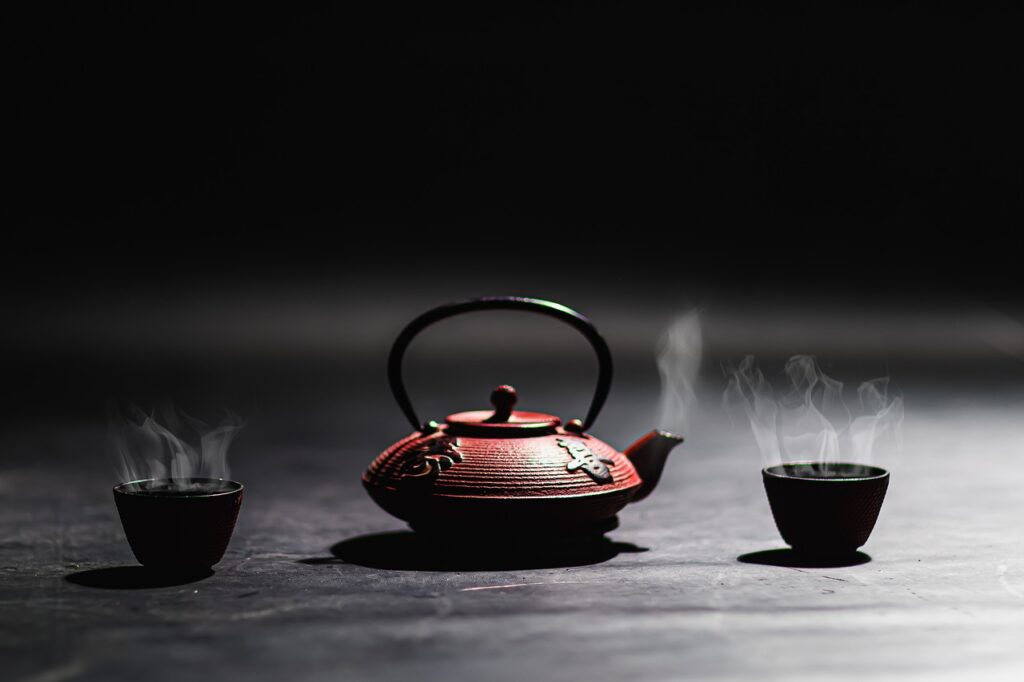Tea is more than just a refreshing beverage; it is a celebrated cornerstone of cultures around the globe. From the delicate flavors of green tea to the robust charm of black tea, each type offers unique benefits that can significantly enhance our well-being. The diverse range of teas not only provides hydration but also delivers an array of vitamins, minerals, and antioxidants that can boost health in numerous ways. This overview will explore the various types of tea, their distinctive qualities, and the wellness benefits they offer, helping you choose the perfect brew for both pleasure and the promotion of a healthy lifestyle.
Green Tea
Green tea is made from the Camellia sinensis plant, and its leaves are not fermented, making it high in antioxidants. The most notable of these antioxidants is epigallocatechin gallate (EGCG), which has been linked to improved brain function, heart health, and metabolism. Green tea also contains L-theanine, an amino acid that promotes relaxation without causing drowsiness.
Regular consumption of green tea has been associated with a lower risk of chronic diseases such as cancer and cardiovascular disease. Whether it’s the finest Japanese green teas or the humble green tea bags found in many supermarkets, incorporating this type of tea into your daily routine can have significant benefits for your overall well-being. It’s best enjoyed without milk and sugar, as these additions can decrease the antioxidant content.
Black Tea
Black tea undergoes a fully oxidized process, resulting in a richer flavor and darker color compared to its green counterpart. This process intensifies its robust characteristics, making it a favorite among those who enjoy a strong cup of tea. Black tea is well-known for its high caffeine content, which can provide a greater energy boost than other types of tea. Its bold profile pairs well with milk and sugar, which can enhance the taste for many drinkers.
In terms of health benefits, black tea contains powerful antioxidants called theaflavins, which have been linked to lowering cholesterol levels and improving heart health. Additionally, research suggests that regular consumption of black tea may be associated with improved gut health, thanks to its beneficial effects on the gut microbiome. Ultimately, black tea not only delivers satisfaction in flavor but may also contribute positively to long-term health.
Herbal Tea
Unlike traditional teas that come from the Camellia sinensis plant, herbal teas are made from a variety of herbs, flowers, and fruits, offering an extensive range of flavors and health benefits. Common herbal teas include chamomile, peppermint, and hibiscus, each bringing unique properties to the table. For instance, chamomile tea is renowned for its calming effects, making it an ideal choice before bedtime, while peppermint tea is often used for its digestive benefits.
Herbal teas are naturally caffeine-free, allowing for enjoyment at any time of day without the risk of sleep disturbances. Many herbal infusions are packed with vitamins, minerals, and antioxidants that can boost immunity and support overall well-being. Whether enjoyed as a comforting warm beverage or a refreshing iced drink, herbal teas are a versatile option for promoting health and relaxation.
White Tea
White tea is the most delicate of all tea types, made from the young leaves and buds of the Camellia sinensis plant. Minimal processing preserves its natural qualities, resulting in a subtle flavor profile and pale color. The lightness of white tea is often appreciated by those who prefer a gentler taste, and it is often described as having a floral or fruity character that is pleasing to the palate.
Health-wise, white tea is rich in antioxidants and possesses anti-aging properties due to its high levels of catechins. Studies suggest that white tea may have a role in combating inflammation and protecting against heart disease. By incorporating white tea into your routine, you can enjoy its delicate flavor while reaping the potential benefits for your skin and overall health.
Oolong Tea
Oolong tea is a semi-oxidized tea that falls between green and black tea in terms of flavor and strength. This type of tea is known for its complex taste, which can vary widely based on how it is processed. Some oolong teas may offer floral notes, while others can be more toasty or earthy, catering to a diverse range of preferences. The careful balancing of oxidation levels imparts a unique profile, making each cup a delightful experience.
Oolong tea is believed to support weight management and metabolic health. Studies have shown that oolong tea can enhance fat burning and help maintain a healthy weight when combined with a balanced diet and lifestyle. With its enjoyable flavor and potential health benefits, oolong tea is an excellent choice for those looking to explore new dimensions of tea while promoting well-being.
The world of tea offers a vast array of options that can cater to different tastes and needs. Whether you’re looking for a boost of energy, relaxation, or support for your health goals, there is a type of tea that can fulfill those desires. By incorporating different types of teas into your routine, you can not only indulge in their diverse flavors but also reap the many benefits they offer for your well-being.






